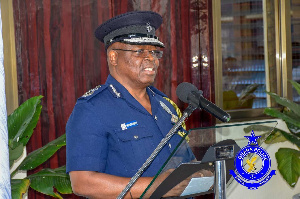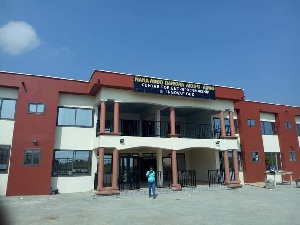Sex for grades: Gyampo, Butakor exonerated

Two lecturers of the University of Ghana who were accused of soliciting sex in order to extend some advantages to female students in a documentary by the British Broadcasting Corporation (BBC) have been cleared of any act of sexual misconduct by the fact-finding committee set up by the university.
The lecturers, Prof. Ransford Gyampo and Dr Paul Kwame Butakor were, however, found culpable of conducting themselves in a manner that caused embarrassment to the university, for which reason the committee advised the university authorities to refer them to the university’s disciplinary committee for appropriate action.
The report, a copy of which is available to the Daily Graphic, said there was no evidence that Prof. Gyampo and Dr Butakor breached the university’s policy on sexual harassment.
“The committee finds that on the totality of the evidence before it, there is a huge variance between the import of the title: ‘Sex for grades’, and the content of the actual secret video recording of the affected lecturers of the University of Ghana,” it said.
The report was presented by the committee to the university authorities in November 2019, but the details were not made public.
On November 20, 2019, the university, in a statement, said the two lecturers had been referred to the disciplinary committee, but the committee is yet to make a determination
No evidence
On the issue of sexual misconduct, the six-member fact-finding committee reached the conclusion that there was no evidence from the BBC documentary which proved any act of sexual misconduct on the part of the lecturers within the context of the university’s regulations.
“The committee notes that neither the documentary nor the BBC has provided any evidence to demonstrate that the affected lecturers demanded sex in exchange for grades, as asserted by the title of the documentary: ‘Sex for grades’,” the report stated.
It further noted that the title of the documentary was sensational and misleading.
Explaining its findings, the committee said per paragraphs 10.1, 12.1 and 12.4 of the Code of Conduct for Academic Staff and the Anti-Sexual Harassment and Misconduct Policy of the university, a victim of sexual misconduct must be a member of the university.
However, the evidence on record showed that the two alleged victims in the video — Zara and Abigail — were not members of the university.
“Consequently, the committee notes that in the absence of any evidence that Zara and Abigail are students or members of the University of Ghana, the provisions of paragraphs 10.1, 12.1 and 12.4 of the Code of Conduct for Senior Members of the University of Ghana and the Anti-Sexual Harassment and Misconduct Policy of the university cannot be triggered against the affected lecturers,” it said.
What the law says
Paragraph 10.1 of the Code of Conduct for Academic Staff of the University of Ghana stipulates: “Academic staff shall refrain from any type of harassment or discrimination against students and shall adhere to the Anti-Sexual Harassment Policy of the university.”
Paragraph 12.1 of the code says: “Academic staff are prohibited from engaging in sexual or amorous behaviour with students,” while Paragraph 12. 4 says: “Academic staff are bound by the Anti-Sexual Harassment Policy of the university.”





